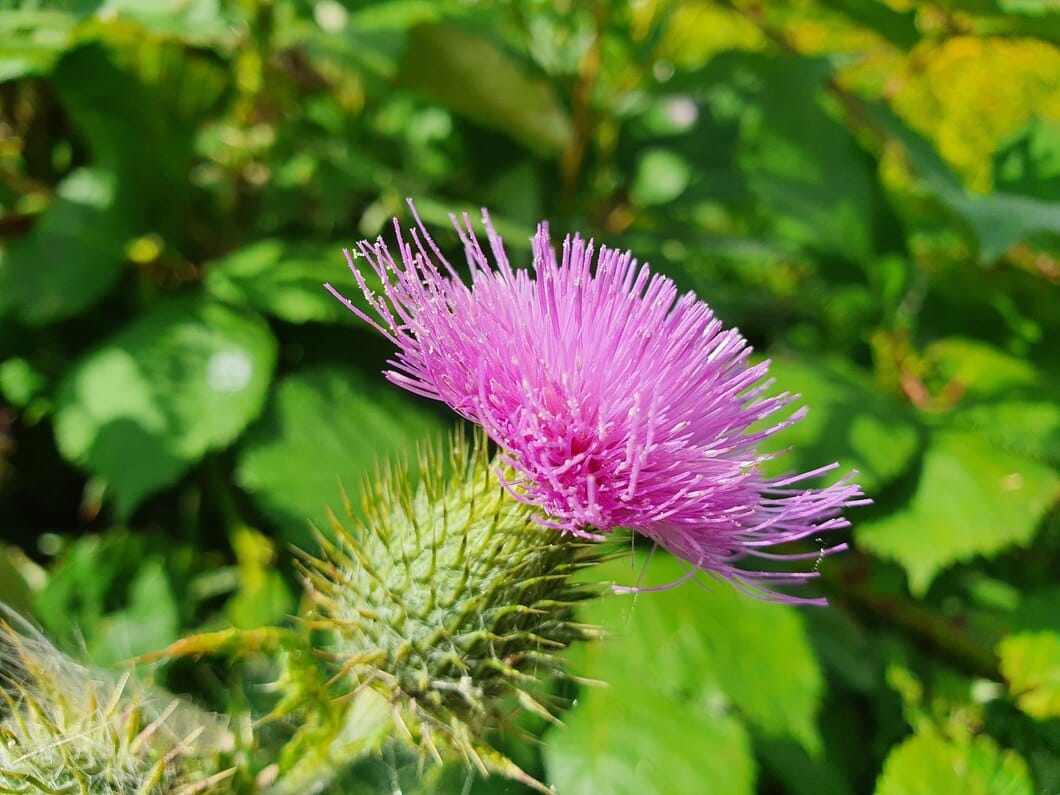Milk thistle is a plant with numerous health benefits, particularly when taken as a dietary supplement. Native to Europe, this plant belongs to the Asteraceae family and is also known as Silybum marianum.
In this article, we'll look at the benefits of milk thistle, its origin and its use as a dietary supplement.
Origin and history of milk thistle
Milk thistle is a plant that grows wild, mainly in Europe, but also in Asia and North Africa. It is now cultivated in many parts of the world for its medicinal benefits.
Its scientific name, Silybum marianum, is made up of "silybum" meaning "thistle" in Greek, referring to the plant's thorny leaves, and "marianum" in honour of the Virgin Mary.
This plant has been used in traditional medicine for centuries, mainly to treat liver and digestive disorders. It was also recommended for its healing and anti-inflammatory properties.
Today, milk thistle is best known for its benefits as a food supplement.
Benefits of milk thistle
Milk thistle has many health benefits, thanks in particular to its content of active compounds such as silymarin, silychristin and silydianin. These compounds are known as "silymarin" and are found in the plant's seeds.
Here are some of the most important benefits of milk thistle:
Protects the liver
The silymarin present in milk thistle is recognised for its hepatoprotective properties. It can help regenerate damaged liver cells and protect the liver against toxins and free radicals. As a result, milk thistle is often recommended for people suffering from liver diseases such as cirrhosis and hepatitis.
Improves digestive functions
Milk thistle may also be beneficial for digestive disorders such as heartburn, bloating and upset stomach. Silymarin can help stimulate the production of bile, which facilitates the digestion of fats and nutrients in the small intestine.
Protects against oxidative damage
Silymarin is a powerful antioxidant that can help combat the damage caused by free radicals in the body. Free radicals can cause health problems such as inflammation, premature ageing and certain chronic diseases.
Boosts the immune system
In addition to its antioxidant effects, silymarin can also stimulate the immune system. It can help increase the production of lymphocytes, the cells responsible for the body's immune defence.
Relieves skin disorders
Milk thistle may also be beneficial for skin problems such as acne, eczema and psoriasis. Silymarin can help reduce inflammation and protect skin cells from oxidative damage.
Use as a food supplement
Milk thistle is mainly taken as a dietary supplement, often in capsule or powder form. The recommended dose generally varies between 200 and 400 mg per day, depending on the concentration of silymarin in the supplement.
It is important to note that milk thistle may interact with certain medicines, particularly anti-diabetics, anticoagulants and blood pressure medication. It is therefore important to consult a health professional before starting a course of milk thistle as a dietary supplement.
Precautions and side effects
Milk thistle is considered safe for most adults when taken in recommended doses. However, it can cause side effects such as headaches, nausea, vomiting and loss of appetite in some people. It is also not recommended for pregnant and breast-feeding women.
It is always important to seek advice from a health professional before starting a course of dietary supplements, especially if you suffer from health problems or are taking medication.
Conclusion
Milk thistle is a plant with numerous health benefits, thanks in particular to its silymarin content. As a dietary supplement, it can help protect the liver, improve digestion, boost the immune system and relieve skin disorders. However, it is important to take precautions and consult a health professional before using it.
Sources :











